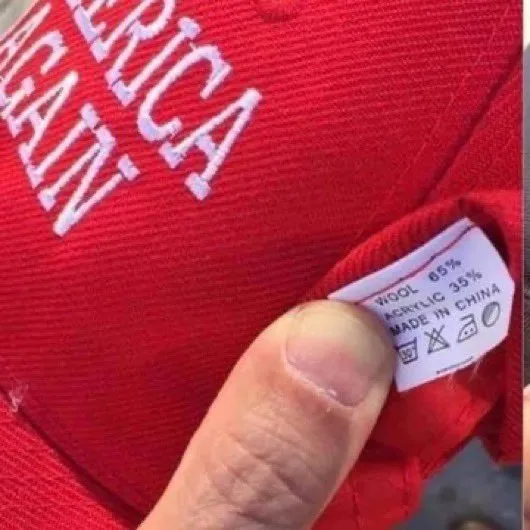Quid pro quo-Strategie ist schnell eskaliert, nachdem China seine Zölle auf US-Produkte ebenfalls auf 34% angehoben hat, hat Trump die Zölle auf chinesische Produkte jetzt auf 104% erhöht.
Eigentlich würde man jetzt viel Popcorn brauchen, aber sobald die Zölle in Kraft treten, werden die Amerikaner nicht mehr viel zu Lachen haben, wenn sie sehen, dass sich damit viele Produkte ohne günstige US-Alternative spürbar verteuern werden.
Kann die Motivation hinter den Zöllen verstehen, aber denke man wird die Welt nicht mehr in das 20. oder 19. Jahrhundert zurückdrehen können.
Die Produktions-Jobs werden auch mit hohen Zöllen wegen dem technischen Fortschritt und den hohen Lohnkosten in den USA nicht mehr zurückkommen. Automatisierung und KI geschuldet.
Die Arbeitswelt entwickelt sich immer mehr Richtung Dienstleistungen weiter, die in der Handelsbilanz überhaupt nicht berücksichtigt werden. Dazu kommen die Investitionen in den US-Kapitalmarkt. Die ganze westliche Welt investiert in US-Aktien und Anleihen, wovon auch Amerikaner profitieren, und dann hat die USA auch noch den Leitwährungsvorteil. Können US-Dollar drucken und damit weltweit günstige Waren einkaufen.
Das Fiat-Problem lässt sich mit Zöllen auch nicht lösen.
Sollte sich die USA im Zuge des Zoll-Kriegs zunehmend isolieren, könnte das massive Auswirkungen auch auf den Aktienmarkt haben, weniger Exporte und weniger internationale Investoren bedeuten niedrigere Kurse bei 401K-Sparplänen, die viele Amerikaner für ihre Pension ansparen.
Die tatsächlichen Zollunterschiede mit der EU waren im Durchschnitt eher im einstelligen Prozentbereich.
Die EU hat höhere Anforderungen bei Lebensmittel und versucht ihre Märkte ebenfalls zu schützen, das stimmt, aber dafür punktet die USA wieder bei IT-Dienstleistungen und hat eine etwa ausgeglichene Leistungsbilanz mit der EU, wenn man Dienstleistungen mitberücksichtigt.
Auch muss es nicht mit jedem Land der Welt eine ausgeglichene Handelsbilanz geben.
In einem Interview hat der US-Zollberater Navarro die hohe Einfuhr-Umsatzsteuer in der EU kritisiert, aber die VAT (Umsatzsteuer) in der EU gilt für alle Produkte und ist daher neutral, kein Zoll.
Denke insgesamt, dass der von Trump und seinen Zoll-Beratern vom Zaun gebrochene Zoll-Krieg grandios scheitern und zu einem großen Wohlstandsverlust führen wird. Vor allem für die USA.
Was sagt ihr dazu?
Made in China

https://x.com/AdameMedia/status/1909692269902676388
EU VAT tax is not a tariff
https://x.com/Acyn/status/1909458154443981123
Musk vs Navarro
https://x.com/ArtCandee/status/1909614713106751989
https://x.com/elonmusk/status/1909676876580504014
https://x.com/elonmusk/status/1909676572191400065
https://x.com/mrp/status/1909414607741243710
"There will be plenty of jobs for robots"
https://x.com/Acyn/status/1909455315520876950
English
Quid pro quo strategy has escalated quickly, after China also raised its tariffs on US products to 34%, Trump has now raised tariffs on Chinese products to 104%.
You would actually need a lot of popcorn now, but once the tariffs come into force, Americans won't have much to laugh about when they see that this will make many products without a cheap US alternative noticeably more expensive.
I can understand the motivation behind the tariffs, but I don't think it will work, it's not possible to turn the world back to the 20th or 19th century any more.
Even with high tariffs, manufacturing jobs will not come back at all due to technological progress and high US labor cost. Automation and AI doing the rest.
Work is developing more and more in the direction of services, which are not taken into account in the trade balance. Additionally there are also significant investments in the US capital market. The entire Western world is investing in US stocks and bonds, which also benefits Americans, and then the US also has the reserve currency advantage. It can print dollars and use them to buy cheap goods worldwide.
The fiat problem cannot be solved with tariffs either.
If the US becomes increasingly isolated due to the tariff war, this could also have a massive impact on the stock market, fewer exports and fewer international investors mean lower prices for 401K savings plans, which many Americans are dependent on for their retirement.
Actual tariff differences with the EU have been more in the single digits on average.
The EU has higher requirements for food and is also trying to protect its markets, true, but the US scores again in IT services and has a roughly even current account balance with the EU when services are taken into account.
And not every country in the world has to have a balanced trade balance with each other in the first place.
In an interview, US tariff advisor Navarro criticized the high import sales tax in the EU, but VAT (value added tax) in the EU applies to all products and is therefore neutral, not a tariff.
Overall, I think that the tariff war launched by Trump and his economic advisors will fail miserably and lead to a major loss of prosperity. Especially for the US.
What do you think?